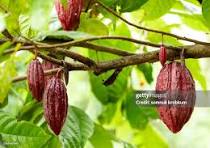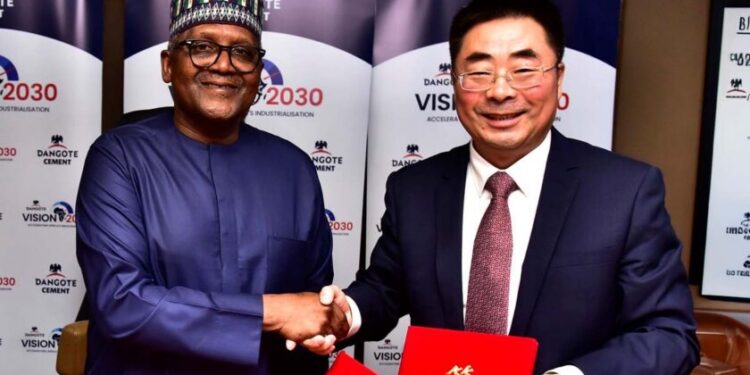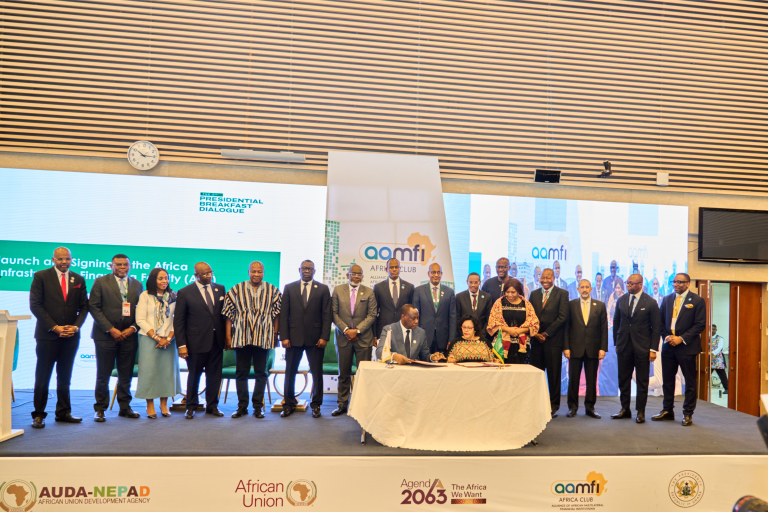Background
The issue of Islamic banking and finance(IBF) in Ghana was first put into the Ghanaian public domain,way back in 2002 when the country for the first time in her history, took a first and bold step towards joining of the Jeddah, Saudi Arabia based, Islamic Development Bank(IsDB) as a member country.
This took the form of a maiden official visit to Ghana by an IsDB delegation during which meetings were held between the delegation and then Minister of Finance and Economic Planning, Governor of Bank of Ghana and Economic Managing Team.
However, shortly after the visit, some began to read all sort of meanings into the move leading to dissention and eventually the well-intentioned act which was for the national good, got stalled somewhere along the line and has since long been pending up till today.
Misconceptions Fuels Suspicions
The fears and suspicions by some were that, Ghana’s joining of the IsDB was tantamount to mortgaging the country to the Sharia Law, adoption of Islamic finance without also mentioning Christian finance was a selective projection of Islam, the minority religion over Christianity, the majority religion in Ghana and that, Islamic banking was also coming to displace conventional banking.
Ghana Joining the IsDB: The Truths Versus Myths
In event of Ghana deciding to subscribe to the shares of the IsDB as a member country/Shareholder just as she has since done in the case of the African Development Bank(AfDB) and the Africa Finance Corporation(AFC) that can’t be tantamount to mortgaging Ghana to any Sharia Law and has never been the case with any member country of the IsDB in its fifty (50) years of existence.
The Islamic Development Bank(IsDB)
The IsDB which was established in 1994, in the Saudi Arabia is one of the world’s major and most reputable development banks today owned by the Organization of Islamic Cooperation(OIC) comprising fifty-seven (57) member countries across the globe including Africa. The basic condition for membership is that the prospective member country should be a member of the Organization of the Islamic Cooperation(OIC).
The Islamic Development Bank Group (IsDB) reported cumulative net approvals of US$194.8 billion(non-Interest in consonance with sharia principles) by the first quarter of 2025. Financing in recent years focused on member countries’ recovery, resilience, and green growth, particularly in climate action, water, transport, energy, and agriculture.
The 27 African member countries including most our neighbours in our West African sub-region, enjoyed a cumulative share of USD65 billion out of the cumulative net approvals.
The Islamic Development Bank (IsDB) Group is comprised of five entities: The Islamic Development Bank (IsDB), the Islamic Corporation for the Insurance of Investment and Export Credit (ICIEC), the Islamic Corporation for the Development of the Private Sector (ICD), the International Islamic Trade Finance Corporation (ITFC), and the Islamic Research and Training Institute (IRTI/IsDBI).
This group of organizations works to promote social and economic development in their 57 member countries across the world. In line with its ethical and best practice standards, it doesn’t meddle in the local religious affairs of any of its member countries and is above partisan religious inclinations.
If Ghana were to be an IsDB member country, the current Finance Minister and Governor BOG and subsequent ones after them will participate in the Annual General Meetings of IsDB. The sitting Finance Minister who becomes a Member of the IsDB Board of Governors, will also serve as IsDB Governor for Ghana.
IsDB’s Collaborative Partnerships
IsDB has since gained reputation and has fruitful collaborative partnerships with the United Nations Development Programme(UNDP) which has since recognized the catalytic role of Islamic finance could play in the attainment of the UN Sustainable Development Goals (UN SDGS), African Development Bank(IsDB), the World Bank Group, etc.
Is Adoption of Islamic Finance a Projection of Islam Over Christianity?
Adoption of Islamic finance by Ghana frankly speaking, can’t be tantamount to a selective projection of Islam over Christianity. Advanced world non-Muslim countries namely, the UK, Luxembourg, Australia, Singapore among others, with minority Muslim populations, have since adopted Islamic banking and finance to the benefits for their gross national economies.
The UK touts her Islamic finance hub of Europe status not by mere words. The UK government introduced IBF into the country in the early 2000s and as of today, the country has a thriving Islamic banking and finance industry in the heart of Europe.
The government that also promotes Islamic finance officially on two occasions have issued Sovereign Sukuks (Islamic interest free bonds) for financing of mega infrastructure projects rather than interest based Eurobond which a number of African countries are still hanging on to with the its debt servicing cost plus payment of the Principal upon maturity.
Why not Christian Finance also?
Indeed, ethical, faith-based or non-Interest financing constitutes one of the most important point of convergence between members of the Abrahamic Interfaith Fraternity comprising, Judaism, Christianity and Islam. Scriptures of the three faiths all contain the issue of interest, usury or riba in Arabic.
A Judaism Perspective
Among followers of Judaism some are still said to be practicing interest-free financial engagement but strictly only among themselves.
Christianity
In Christianity, we also have what is termed as “Catholic Finance” or faith-based financing which some churches practice among their members. Christian or Catholic finance is yet to be organized into an industry and gain worldwide acceptance and patronage.
Islam
In the case of Islam, Islamic banking and finance, is a centuries long Prophetic legacy which has gone an evolutionary process. It is not only open to all humanity irrespective of religion, race or colour, but also,has been time tested and proven to be an vibrant alternative to conventional interest based banking and finance.
IBF has therefore since gained global appeal and acceptance in both Muslim and non-Muslim countries alike,worldwide.The World Bank Group, World Economic Forum, UNDP among others, have since endorsed its relatively high development friendliness especially for emerging economies. The IMF and IFC all members of the World Bank Group ,are on record to have on a number of occasions,issued the Islamic zero bond(sukuk) to raise interest-free capital for their project financing rather than interest based Eurobond.
The Islamic financial system is well organized with guidelines, regulatory and standardization institutional frameworks under which Islamic banks and non-banking financial institutions operate in both Muslim and non-Muslim countries worldwide.
A 2011 report from the Vatican’s newspaper, L’Osservatore Romano, suggested that the ethical principles of Islamic finance, such as profit sharing instead of interest and investment in real projects, could help address global economic crises and inspire more ethical financial practices in Western banking.
This aligns with Pope Francis’s broader calls for a more fair and ethical financial system that prioritizes human dignity and the environment over profit.
Islamic Banking Here to Rival Conventional Banks?
Islamic banking and financing plays a complementary role to its conventional counterpart and is not here in Ghana to rival it but rather, to co-exist peacefully side by side with it without any problems
All the global AAA rated banks namely, Barclays, Standard Chartered, HSBC, PNB Paribas, France, among others, who saw the emergence of Islamic banking as an opportunity rather than threat, have since opened Islamic banking units or windows under their conventional banking operations to serve potential customers who prefer banking products that align with their religious beliefs and aspirations.
The Nigeria IBF Case Study
Islamic finance protagonists in Nigeria drawing useful lessons inspirations from Gambia’s success in Islamic banking made moves in the early to mid-2000s.Some religious groups as a result of misconceptions they had held about Islamic finance initially openly opposed it. The issue of Nigeria joining the IsDB as a member country too was also subject to controversy.
Upon its eventual introduction reflected in the first fully fledged Nigerian Islamic bank, Jaiz Bank Plc opening shop, it came to dawn on those who had initially opposed the move that, Islamic finance is for all Nigerians irrespective of their religious persuasions and never for Muslims alone as some had wrongly assumed.
Today, Islamic banks serve both Nigerian Muslim and non-Muslim customers alike. Nigeria being the latest among African countries to join the IsDB has already worked her way up to the Top 10 majority shareholders in the bank.
As of today the country has chalked successes in Islamic banking and insurance, and leveraging of foreign and local currency Sukuks issuances for funding mega road infrastructure projects across the country to the benefit of all citizens irrespective of their cultural or religious backgrounds.
Key policy recommendations made during Ghana’s National Economic Dialogue, earlier this year, included Islamic finance that set the tone for a number of pragmatic actions that have so far been taken by the central bank towards the country’s desire to explore non-interest financing alternatives as also being done by a number of her West African counterparts.
An Eco-Enviro News, Africa Feature




